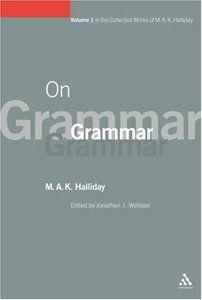
Already half a century earlier Franz Boas (1911) had stressed the unconscious character of language, unique (as he saw it) among the phenomena of human culture. Boas’ observation was to be understood in its contemporary context as a characterization of the language system (langue); not that, writing in 1911, he could have read Saussure’s Course in General Linguistics, any more than Mathesius could have done; but the unconscious was in the air, so to speak, and playing a critical role in the conception of systems as regularities underlying human behaviour. But Boas may also have had in mind the unconsciousness of the behaviour itself: the act of speaking (acte de parole) as an unconscious act. The lack of conscious awareness of the underlying system, and the difficulty that people have in bringing it to consciousness, are things which language shares with other semiotic systems – for example, social systems like that of kinship; what is unusual about language is the extent to which even the manifestation of the system, the actual process of meaning, remains hidden from observation, by performer and receiver alike. In that respect talking is more like dancing, or even running, than it is like playing chess. Speaker and listeners are of course aware that the speaker is speaking; but they are typically not aware of what he is saying, and if asked to recall it, not only the listeners but also the speaker will ordinarily offer a paraphrase, something that is true to the meaning but not by any means true to the wording. To focus attention on the wording of language is something that has to be learnt — for example if you are studying linguistics; it can be a difficult and somewhat threatening task.
About 30 years ago, as a result of being asked to teach English intonation to foreign students, I began observing natural spontaneous discourse in English; and from the start I was struck by a curious fact. Not only were people unconscious of what they themselves were saying; they would often deny, not just that they had said something I had observed them to say, but also that they ever could say it. For example, I noticed the utterance it’ll’ve been going to’ve been being tested every day for the past fortnight soon, where the verbal group will have been going to have been being tested makes five serial tense choices, present in past in future in past in future, and is also passive. This passed quite unnoticed by both the speaker and the person it was addressed to; yet at the time it was being seriously questioned whether a simple verb form like has been being tested, which one can hear about once a week, could ever occur in English. Five-term tense forms are, predictably, very rare — one can in fact make a reasonable guess as to how rare, on the basis of observed frequencies of two- and three-term tense forms together with the constraints of the tense system; but they are provided for within the resources of the spoken language. Another instance I observed was they said they’d been going to’ve been paying me all this time, only the funds just kept on not coming through.
Other things I noted regularly included present in present participial non-finites like being cooking in I never heard you come in — it must have been with being cooking; marked thematic elements with reprise pronoun, as in that poor child I couldn’t get him out of my mind; and relatives reaching into dependent clauses, such as that’s the noise which when you say it to a horse the horse goes faster. These are all systematic features that people are unaware that they incorporate in their speech, and often deny having said even when they are pointed out; or at least reject as unsystematic – after “I didn’t say it”, the next line of defence is “well it was a mistake”. But of course it was not a mistake; it was a regular product of the system of spoken English.
Halliday, M.A.K. 2005. On Grammar. London: Continuum Press. pp.325-327. || Amazon || WorldCat
